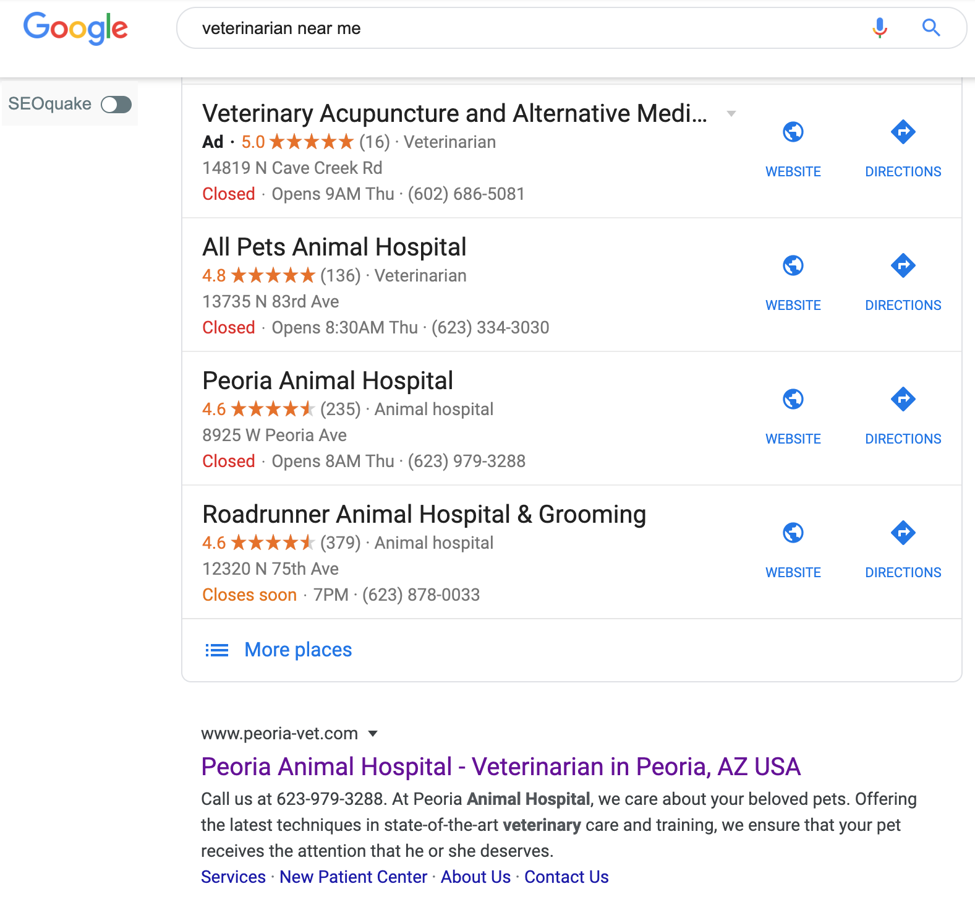Are you struggling with how to start a blog for your business? The real question you should ask yourself isn’t how to start a blog for your business – it’s should you start a blog for your business?
While it may seem like most marketing experts agree that the answer is yes, every business should have a blog, the research says otherwise. In this article, we’re going to look at some data on whether every business needs a blog in the first place.
Then we’ll look at how you can find out if you need a blog for your business.
A Deeper Look at Content Marketing Statistics
If you do a Google search for content marketing statistics, you’ll get a lot of content marketing agencies talking about the overall benefits of content marketing in areas like building awareness, lead generation, and conversions.
It’s important to note that a lot of those statistics are talking about content marketing as a whole – text, image, video, social, etc. But what about blogging specifically? How does blogging specifically benefit businesses?
According to Content Marketing Institute’s survey of over a thousand B2B and B2C content marketers, only 31% in both categories reported blog posts/short articles helped in building brand awareness. 13% of B2B content marketers reported blog posts/short articles also helped in nurturing leads.

Content marketers in manufacturing only reported social media content and email newsletters as helping in building brand awareness and nurturing leads, even though 71% reported created blog posts/short articles as a part of their content marketing strategy.
Small law firms aren’t blogging much either. The American Bar Association’s 2019 Technology Report states that “Since 2016, 25-30% of respondents overall have reported that their firm has a blog, with 30% reporting this year that their firm has a blog. Again, solos remain the least likely, at only 9%, to have a firm blog.” For law firms, the leading marketing channels include email, Facebook, and direct mail.
According to the National Association of Realtors, only 11% of Realtors were likely to have a real estate blog. They specified that they were most likely Realtors under the age of 49. 93% of Realtors rely on email, 92% on text, and 76% on social media.
A Deeper Look at Your Competitors Blogging Habits
Statistics really mean nothing when it comes down to beating the competition. You have to take advantage of the best marketing tactics that will ultimately get you to surpass your competitors in search results. So let’s analyze your competitors in a couple of different ways.
First, let’s analyze the top competitors for your business’ main keyword phrase. If you have an animal hospital, one of the top search terms is veterinarian near me with over 300,000 average searches per month.

For those that do, you may find a “Hello World” post or a few that they tried in an effort to fall in line with the latest trending marketing advice. In either case, you probably don’t need a blog either to keep up with the competition.
Next, let’s analyze the top competitors for the rest of the keyword phrases you want to rank for in search. Note whether the pages that rank in search for the keyword phrases you want to target are website homepages, service pages, product pages, or blog posts. This will let you know whether you need a blog post to rank for a specific search term.
If you have larger competitors, you may need tools like SEMrush to do the analysis for you. It will allow you to sort the top pages on your competitor’s site based on organic search traffic volume, giving you an idea of whether your competitor’s search traffic is attracted to their static content or blog content.
For example, if you were competing with Experian.com, you would find many of the top pages attracting search engine traffic are blog posts.
An analysis of another competitor for a different business, however, might reveal that blog posts do not generate hardly any of the main search traffic. It really all depends on the niche.
Alternatives to Blogging
Content marketing does have a positive effect on your website’s visibility in search when done properly, but content marketing results do not have to be achieved solely through blogging.
- You don’t have to try to find dozens of ideas to plug into a content calendar that you have no idea who is going to fulfill.
- You don’t have to promote new content on a weekly basis to social media audiences, groups, forums, Q&A networks, etc.
- You don’t have to create popups to ask people to subscribe to a blog about killing pests that you know no one really wants to subscribe to.
Instead, you can create great content that will capture search audiences that fits your business, your style, and your timeline. You can one or more types of content: case studies, presentations, white papers, help center articles, knowledge base articles, FAQs, videos, webinars, interviews, news releases, press releases, microsites, wikis, dictionaries, Q&A, original research, podcasts & transcriptions, and video & transcriptions.
You can optimize all of these types of content for your target keyword phrases and add relevant structured markup data. With the right promotion of each piece of content (for links), you should see your website’s organic search traffic increase as your website’s visibility in search increases with higher keyword rankings on more webpages.
Does Your Business Need a Blog?
If you need help to analyze your competitors and determining what type of content marketing will be the best fit for your business, we can help. Contact us today so we can discuss the best content and SEO solutions for your startup, medium-sized business, or enterprise.






